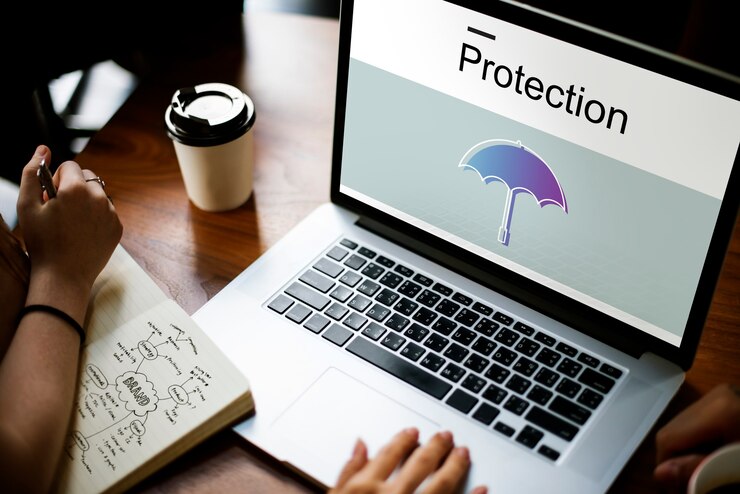In the fast-evolving world of affiliate marketing, managing risk is crucial. Among the most important aspects affiliates and network owners must understand is vicarious liability — a legal principle that holds one party accountable for the actions of another. For affiliate marketers, this could mean being held liable for the actions of their sub-affiliates or third-party partners. In this blog, we’ll dive into what vicarious liability risks mean for your business, how they apply to affiliate networks, and strategies for mitigating potential legal challenges.
What is Vicarious Liability in Affiliate Marketing?
At its core, vicarious liability refers to a situation where one entity (usually an employer or a network owner) is held responsible for the actions of another party (typically employees or partners) who act on their behalf. In affiliate marketing, this often comes into play when a network is held accountable for actions or violations committed by its affiliates or sub-affiliates, even if the network wasn’t directly involved in the activity.
For example, if a sub-affiliate engages in misleading advertising or violates consumer consent rules, the primary affiliate or the network could be held liable, depending on the nature of the contractual relationships and the regulatory environment.
How Vicarious Liability Applies to Affiliate and Sub-Affiliate Networks
Affiliate networks, particularly those like revJOLT, serve as intermediaries between advertisers and affiliates, allowing for streamlined campaign management and performance tracking. However, this relationship opens the door for potential legal risks, particularly when:
- Sub-affiliates Act in Bad Faith: If sub-affiliates engage in deceptive practices, violate consumer privacy, or use fraudulent methods to generate leads, the affiliate network could be held liable if it’s proven that they were negligent in monitoring or managing their partners.
- Failure to Vet Affiliates Properly: If a network fails to conduct proper due diligence when onboarding affiliates and sub-affiliates, and one of them engages in non-compliant or fraudulent activity, the network might find itself facing legal repercussions due to a lack of oversight.
- Non-compliant Marketing Methods: Affiliates using methods like misleading ads, false claims, or failing to obtain proper consent from consumers could potentially harm the network’s reputation and lead to fines, especially if the network has not actively monitored the campaigns.
The Potential Consequences of Vicarious Liability
Being held vicariously liable for the actions of sub-affiliates or other third-party partners can have severe consequences, including:
- Financial Penalties: Non-compliance with industry regulations (like GDPR, CCPA, or TCPA) can lead to significant fines, which may be passed down to the affiliate network.
- Reputational Damage: If customers or clients find out that an affiliate network is involved in unethical or illegal activities, it can seriously damage its reputation and harm long-term business relationships.
- Legal Costs: Defending against claims of vicarious liability can result in costly legal proceedings. Even if the network is not found at fault, the time and financial investment in defending such claims can be burdensome.
- Loss of Partnerships: Brands and advertisers may pull out of a network that faces legal challenges due to vicarious liability, fearing that the network is not properly vetting or overseeing its affiliates.
How to Mitigate Vicarious Liability Risks

Given the risks associated with vicarious liability, it’s crucial to take proactive steps to safeguard your business. Here are several key strategies for reducing vicarious liability exposure in affiliate and sub-affiliate networks:
1. Thorough Vetting and Onboarding Processes
One of the best ways to minimize vicarious liability is to ensure that you’re working with reputable affiliates and sub-affiliates from the start. Establish a rigorous vetting process that includes checking references, reviewing past campaigns, and verifying legal compliance records. Only onboard affiliates who meet your compliance and ethical standards.
2. Clear Contracts and Agreements
Ensure that contracts with both affiliates and sub-affiliates clearly define their responsibilities, obligations, and liabilities. Explicitly state that affiliates are responsible for adhering to all relevant laws and regulations, including those concerning data privacy, advertising standards, and consumer consent. This legal framework helps protect you from potential claims.
3. Ongoing Monitoring and Compliance Checks
Don’t leave your affiliates to operate unchecked. Regularly monitor the campaigns being run by your affiliates and sub-affiliates. Implement automated tools that track performance and ensure compliance with advertising standards and consumer protection laws. Staying proactive can help identify issues before they escalate.
4. Implement Strong Reporting and Auditing Mechanisms
Set up reporting systems that require affiliates to provide transparency into their marketing practices. Regular audits can ensure that affiliates are adhering to contractual agreements and legal obligations. By catching non-compliance early, you can address issues before they lead to legal trouble.
5. Training and Education
Provide ongoing training to your affiliates and sub-affiliates about compliance with industry regulations. This can help ensure that your partners are well-versed in the legal landscape, reducing the likelihood of inadvertent violations. It also fosters a culture of responsibility and compliance within your network.
6. Clear Opt-Out and Consent Management Protocols
Establish and enforce clear consent management protocols for affiliates, particularly when collecting consumer data. Ensure that all leads are properly vetted and that consumer opt-out and revocation requests are handled promptly and efficiently.
Conclusion: Protecting Your Network from Vicarious Liability
Vicarious liability in affiliate and sub-affiliate networks is a real concern for both network owners and partners. However, by implementing strong vetting processes, clear contracts, regular monitoring, and robust training, you can significantly reduce the risks and safeguard your business from potential legal pitfalls.
Affiliate networks like revJOLT are uniquely positioned to help mitigate these risks by fostering transparency, ensuring compliance, and providing dedicated support to affiliates. By partnering with a network that takes compliance seriously, you can focus on growing your business while maintaining a high level of trust with both clients and consumers.
Join revJOLT today to work with a network that values legal compliance and ethical marketing practices


